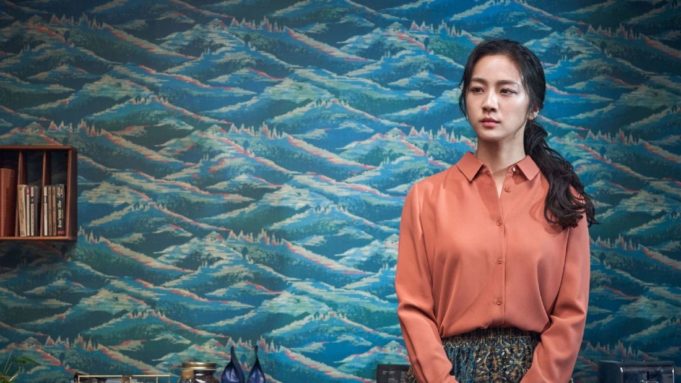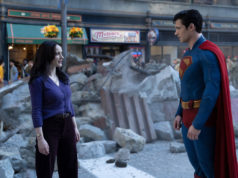The teasingly ambiguous Decision to Leave is the first Korean movie I’ve seen that feels like a Pedro Almodóvar film: languid, dreamy, filled with references to TV soap operas and gorgeously muted colors. More than that, it’s also a story of obsession wrapped in a murder mystery that would be just at home alongside something like Broken Embraces. It’s opening this week at Alamo Drafthouse Denton, where you can make the comparison or just take in one of the year’s most tantalizing films.
Insomniac, chain-smoking Det. Jang Hae-joon (Park Hae-il) works homicide cases in Busan, but his wife (Jung Yi-seo) lives in a seaside town far away, so they only see each other on weekends, which strains their marriage. That’s when Hae-joon takes on the case of Ki Do-soo (Yoo Seung-mok), a 60-year-old retired civil service worker who appears to have fallen to his death while climbing a mountain nicknamed “Oil Peak” because it’s that slippery. The man’s wife Song Seo-rae (Tang Wei) is a much younger Chinese immigrant who went through hell to reach South Korea. The police keep finding out shadier information about her, and she keeps producing so much exonerating evidence that it starts to strain credibility.
One difference between this and Almodóvar is that Park is willing to put his detective in ridiculous situations. There’s a farcical foot chase through the streets where both the fugitive and the cops become exhausted running up Busan’s steep hills. A gangster is comically named “Slappy” (Seo Hyun-woo) for the unfunny reason that he likes to slap women around because punching them hurts his hand too much. Hae-joon himself isn’t overly good at his job — he bungles another suspect’s pursuit every which way, and when he stakes out Seo-rae’s apartment, she finds his hiding place immediately. His incompetence makes for some leavening comedy and makes him an easy mark.
Gratifyingly, he’s not a total idiot. He uncovers enough about the murder victim for us to appreciate the fine details: Ki Do-soo was a wife-beater who was taking bribes to let undocumented immigrants into the country, appreciated fine whiskey and Gustav Mahler, and monogrammed all of his possessions, including his wife. The detective notes that Seo-rae’s Korean is old-fashioned because she watches lots of period soap operas to learn the language. Hae-joon uncovers an unsettling clue when he looks at the smartphone owned by an old lady (Jung Young-sook) whom Seo-rae regularly checks in on and finds that its owner climbed 138 flights of stairs on the day of the murder, and there’s just no way.
Time and again, Park casts doubt on what we’re seeing. He repeatedly films shots like our two protagonists are looking at each other when in fact they’re miles away, and when the detective imagines a scenario in which Seo-rae could have committed the murder, we see him on the mountain observing her taking the easy path up, beating her husband to the peak, and then pushing him off once he got there. The characters have a translation app that renders Seo-rae’s occasional Mandarin into Korean, but even it proves fallible. The romantic scenes between the couple are filmed in a style that’s delirious and also more restrained than their equivalents in Korean soap operas. Eventually, Seo-rae concludes that Hae-joon’s love for her is borne of his obsession with her, and that if he ever solves the case, his love for her will end. With that, she chooses a way out that ends Decision to Leave on a chilling note.
Decision to Leave
Starring Park Hae-il and Tang Wei. Directed by Park Chan-wook. Written by Jeong Seo-kyeong and Park Chan-wook. Rated R.












